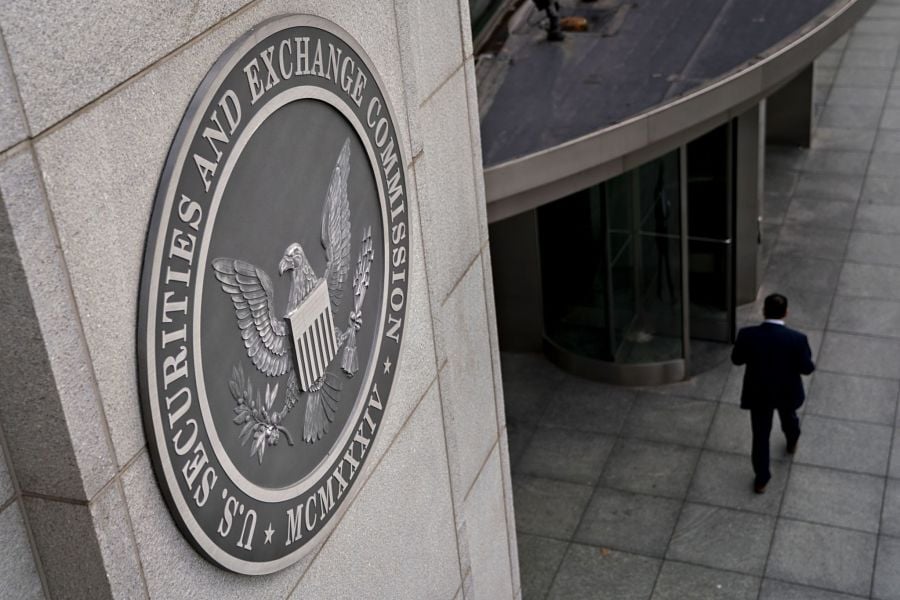

The SEC ordered a North Dakota investment advisory firm and one of its advisors to pay $933,341 in monetary sanctions for misusing leveraged exchange-traded funds in client accounts.
In an order released Thursday, the Securities and Exchange Commission charged Classic Asset Management, based in Fargo, North Dakota, and the firm's indirect part-owner and investment advisor representive Douglas Schmitz with violating their fiduciary duty to clients by recommending the complex ETFs without understanding their risks and whether they were in the clients’ best interests.
From at least 2017 through December 2020, the SEC said the firm and Schmitz invested advisory clients in leveraged ETFs for “extended periods of time” and “in significant concentrations” despite warnings in in bold on the front page of prospectuses that the investments carried unique risks, were only to be held for a single trading day and required close monitoring.
During the relevant period, Schmitz invested about 220 of his 290 clients in the complex ETFs, which they held in their accounts for an average of more than 330 days, according to the SEC order. Less than 1% of the leveraged ETFs were sold within one day.
“Neither [the firm] nor Schmitz had a reasonable basis to conclude that the [leveraged ETFs] were suitable for their clients either generally or in the manner in which they intended to use them,” the SEC order states.
The SEC also said the firm and Schmitz failed to monitor the investments to assess whether they were in their clients’ best interests throughout the holding period. Leveraged ETFs are designed to deliver multiples of the indices on which they are based using complex strategies.
The SEC ordered the firm to pay $81,824 in disgorgement, $13,404 in prejudgment interest, and a $100,000 fine, for a total monetary sanction of $195,228. The agency ordered Schmitz to pay $523,086 in disgorgement, $115,037 in prejudgment interest, and a $100,000 fine, for a total penalty of $738,113.
The enforcement case comes as the SEC has increased its scrutiny of the complex products. The Financial Industry Regulatory Authority Inc. and state regulators also are giving the often risky and opaque vehicles a harder look.
"Investment advisers have fiduciary duties to act in their clients’ best interest, and this is particularly important when investing clients in complex products such as leveraged ETFs," Jason J. Burt, director of the SEC’s Denver regional office, said in a statement. "Complex products present unique risks, and investment advisers must ensure that there is a reasonable basis to recommend these products before purchasing them for clients."
Neither the firm nor Schmitz, who also is based in Fargo, admitted or denied the SEC’s findings. A lawyer for the firm declined to comment. A lawyer for Schmitz did not respond to a request for comment.

Rajesh Markan earlier this year pleaded guilty to one count of criminal fraud related to his sale of fake investments to 10 clients totaling $2.9 million.

From building trust to steering through emotions and responding to client challenges, new advisors need human skills to shape the future of the advice industry.

"The outcome is correct, but it's disappointing that FINRA had ample opportunity to investigate the merits of clients' allegations in these claims, including the testimony in the three investor arbitrations with hearings," Jeff Erez, a plaintiff's attorney representing a large portion of the Stifel clients, said.

Chair also praised the passage of stablecoin legislation this week.

Maridea Wealth Management's deal in Chicago, Illinois is its first after securing a strategic investment in April.
Orion's Tom Wilson on delivering coordinated, high-touch service in a world where returns alone no longer set you apart.
Barely a decade old, registered index-linked annuities have quickly surged in popularity, thanks to their unique blend of protection and growth potential—an appealing option for investors looking to chart a steadier course through today's choppy market waters, says Myles Lambert, Brighthouse Financial.
